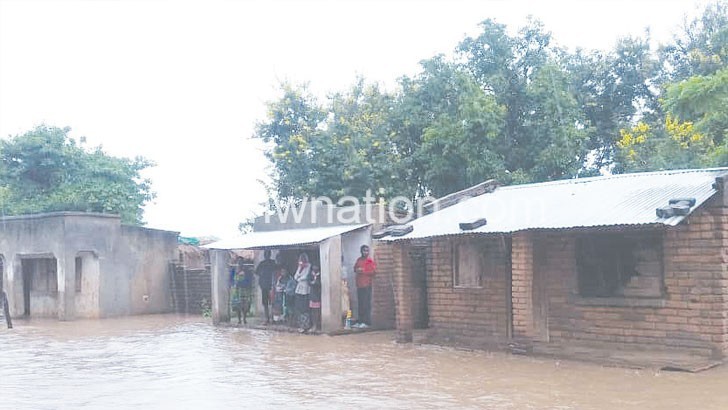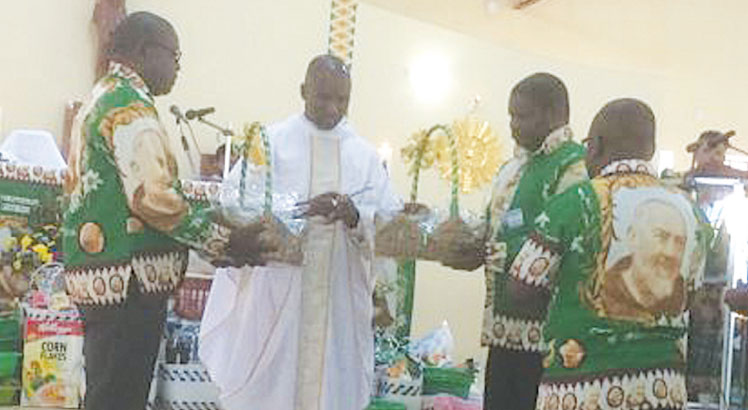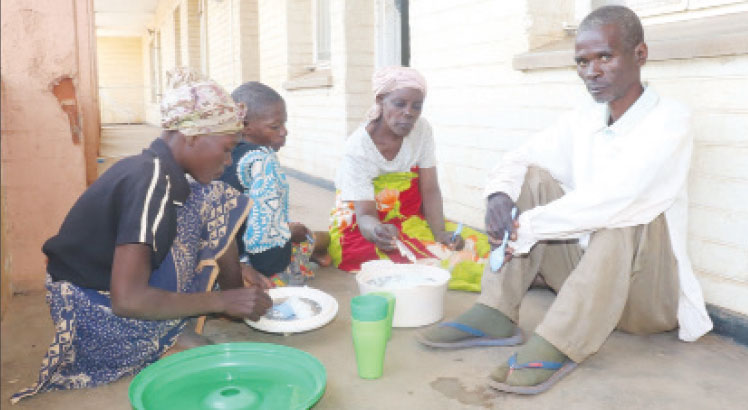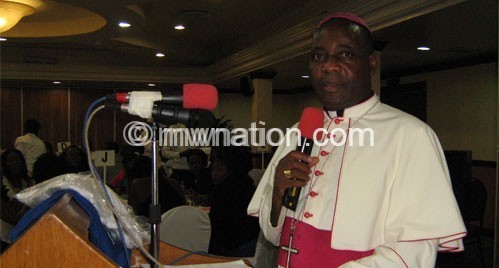Malawi flood disaster: Where is the love?
Now we who are strong ought to bear the weaknesses of those without strength and not just please ourselves. Each of us is to please his neighbor for his good, to build them up.” (Romans 15:1-2)
Giving an update on the January 2015 Malawi floods that affected 15 of the country’s 28 districts back then, Vice-President Saulos Chilima labeled the disaster as “one of the worst in recent times.”
The calamity’s death toll reached 176, with at least 200 000 displaced.

world can exploit as part of evangelism
Fast forward to 2019, the floods have hit again. This time affecting 17 disricts districts, claiming 56 lives and displacing 190 000, accrding to th Department of Disaster Management Affairs (Dodma).
Everyone seems to be having their own interpretation to the deveastation. Scientists attribute it to climate change, fueled by various human activities that have led to massive environmental degradation. The church on the other hand, seems convinced that that this is just one of those end-time signs.
Whether these are signs or the times or times of the signs, as others are claiming, the floods are not uncommon in the country.
In fact, between 1946 to 2013, floods had accounted for 48 percent of major disasters. According to various media outlets, their frequency and severity have been increasing by each passing day.
How then does the believer respond to this? Are such torrid times a reminder of the soon return of Jesus Christ—the Saviour—and start “living right” and “finishing the work” as prescribed in the Great Commission as recorded in Matthew chapter 28 of the Holy Bible?
Or, perhaps is this an opportunity for Christians to profess the faith by putting around an arm to that neighbour Jesus taught of in The Good Samaritan?
“True religion lies in how we respond to the needs of others around us, as they say sharing is caring” says Reverend Father Alfred Chaima.
The Blantyre Archdiocese Pastoral Secretary added that the Catholic Church in the country has already sprung out to help the flood victims.
Among others, the church held special prayers on the subsequent Sunday following the floods where it also called out for relief items from the congregants to be handed over to the relevant authorities on March 31.
“Catholic Development Commission in Malawi [Cadecom)]is already working with government on the same and they are already on the ground,” he added
On its part, Seventh-Day Adventist (SDA) Church in Malawi confirms it is mobilising resources in response to the floods.
Head of the church in the country Pastor Frackson Kuyama, concurred with Chaima for the church to take a leading role during such torrid times.
“This is the sole reason religion —in this case, Christianity—exists in the world; to inspire hope to the hopeless. It’s a pity most seem to be doing this now and yet the poor and the afflicted have always been with us all along. Perhaps this will act as a work up call among Christians,” he said.
Kuyama added that he has extended personal calls for relief aid to the diaspora, saying the church will partner with its global development arm, Adventist Relief Agency (Adra) for coordination.
The Christian world is not the only one doing “something about it” as regards the disaster at hand.
As we went to press, opposition Malawi Congress Party (MCP), among others, had organised national prayers for the victims at Crossroads Hotel in Lilongwe on Saturday [yesterday].
The party’s presidential hopeful Lazarous Chakwera, himself an ordained pastor, was expected to lead the prayers that also had “…to put God before campaign” as one of its themes.
However, renowned evangelist Tony Nyirenda was not impressed with the way the country’s religious gropus have responded to the disasters.
“I’m aware most of them
[churches]have had various developments projects toward building resilience among the affected communities. But this is not enough,” he said.
Among others, he bashed the “indifference” in many a believer in the country that always feel it’s government’s role to help the victims.
He added: “Unfortunately, it’s like most people choose to act when they are directly affected. This is not what [Jesus] Christ taught.”
Nyirenda feels such indifference can also jeaopadise Christian revival crusades once the situation normalises.
“Imagine churches going to the same communities later on to preach that God loves them yet they never felt the love from us —Christ’s followers —during their affliction? Do you think they would understand? I don’t think so because I have always taken Christianity as an action-oriented religion,” explained Nyirenda.
The evangelist must have drawn his inspiration for his comments from John 13:34-35: “A new commandment I give to you, that you love one another, even as I have loved you, that you also love one another. By this all men will know that you are my disciples, if you have love for one another.”
Talking of true Christianity, renowned civil rights activist Mahatma Ghandi could not have put it any better.
When quizzed why he was not a Christian despite him being ‘that learned’, he is understood to have responded: “I’d be a Christian if it were not for the Christians!”
Word has it that Ghandi, having studied Christianity, was left disappointed by how way ward Christians lived their lives, that it was miles away from what they profess to believe in.
He would later write: “I came to the conclusion long ago . . . that all religions were true and also that all had some error in them, and whilst I hold by my own, I should hold others as dear as Hinduism. So we can only pray, if we are Hindus, not that a Christian should become a Hindu … But our innermost prayer should be a Hindu should be a better Hindu, a Muslim a better Muslim, a Christian a better Christian.” (Young India: January 19, 1928)
He must have been propagating the thought that religion is to morality what water is to the seed that is sown in the soil.
The notion adds that just as the seed is choked under the earth when it is not duly watered, so too the morality which is devoid of the fertilising influence of religion gets thin and dry and is ultimately destroyed.
In other words, morality divorced from religion would be an empty thin.
The hope is to see the real Christian rise up amid the current flood disasters! n





